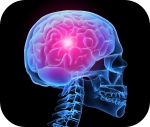What data is most relevant to feeling well & being healthy?
What data is most relevant to feeling well & being healthy?
What data is most relevant to you feeling well & being healthy? and Why?
How do you use your data to feel your best & be your healthiest?
How do you use your data to feel your best & be your healthiest?
_________________
| Machine: DreamStation BiPAP® Auto Machine |
| Mask: AirFit™ P10 Nasal Pillow CPAP Mask with Headgear |
| Humidifier: DreamStation Heated Humidifier |
| Additional Comments: Resmed Airfit P10 Mask, ZEO EEG, Contec CMS-50 SpO2, Philips SO BiPAP Auto as Backup. |
Re: What data is most relevant to feeling well & being healthy?
Full set of Lab tests and a MRI. The data from a XPAP machine is to help you decide how your Sleep Apnea treatment is going, and show you ways to make it work better. Jim
Use data to optimize your xPAP treatment!
"The art of medicine consists in amusing the patient while nature cures the disease." Voltaire
"The art of medicine consists in amusing the patient while nature cures the disease." Voltaire
Re: What data is most relevant to feeling well & being healthy?
I use my data to find problems and hopefully catch them early. What is most important to me no matter what the data says is how I feel.
I had a machine that was not working properly so the data showed everything was fine but I felt like shit. After I finally realized something was up I went in and was given a new machine and it made a world of difference.
So no matter what the data says if you don't feel good then data that shows you are doing good is useless.
The data is a tool for you to use.
I had a machine that was not working properly so the data showed everything was fine but I felt like shit. After I finally realized something was up I went in and was given a new machine and it made a world of difference.
So no matter what the data says if you don't feel good then data that shows you are doing good is useless.
The data is a tool for you to use.
_________________
| Machine: ResMed AirSense™ 10 AutoSet™ CPAP Machine with HumidAir™ Heated Humidifier |
| Mask: ResMed AirFit™ F30 Full Face CPAP Mask with Headgear |
Re: What data is most relevant to feeling well & being healthy?
But in case you're asking what I think you're asking... AHI (apnea-hypopnea index) is 'the' #1 factor for most people and the lower you get it (within reason) below 5, the better off you should be all other things being equal. Other important ones are leak rates, air flow and pressure, but go to the lightbulb at the top of the page here and start reading - there's a ton of great info that you can learn from.
Re: What data is most relevant to feeling well & being healthy?
Not according to the discoverer of CPAP. Check the article on my signature line.Julie wrote:But in case you're asking what I think you're asking... AHI (apnea-hypopnea index) is 'the' #1 factor for most people and the lower you get it (within reason) below 5, the better off you should be all other things being equal. Other important ones are leak rates, air flow and pressure, but go to the lightbulb at the top of the page here and start reading - there's a ton of great info that you can learn from.
_________________
| Humidifier: S9™ Series H5i™ Heated Humidifier with Climate Control |
| Additional Comments: S9 Autoset machine; Ruby chinstrap under the mask straps; ResScan 5.6 |
see my recent set-up and Statistics:
http://i.imgur.com/TewT8G9.png
see my recent ResScan treatment results:
http://i.imgur.com/3oia0EY.png
http://i.imgur.com/QEjvlVY.png
http://i.imgur.com/TewT8G9.png
see my recent ResScan treatment results:
http://i.imgur.com/3oia0EY.png
http://i.imgur.com/QEjvlVY.png
Re: What data is most relevant to feeling well & being healthy?
That article is from 2002, but in any case, AHI is what almost everyone goes by unless they also have an oximeter, which is another story, but the question was about data.
Re: What data is most relevant to feeling well & being healthy?
The data I use that is most relevant is if I'm feeling well and healthy. I don't depend on any machine data to tell me that, or to correlate with how I feel.
I take medicines which the doc and I think interfere with my sleep causing me to have a high AHI (six month average of 28). Several overnight oximetry tests showed I do not desaturate. Now I felt pretty good with that AHI, but asked for a trial of ASV. My AHI has come down to a two month average of 11. I feel slightkly better- I was looking at two things, improvement in lingering drug resistant depression and sleeping 10-13 hours a niight. The depression is better, but I still will easily sleep 13 hours if allowed.
I take medicines which the doc and I think interfere with my sleep causing me to have a high AHI (six month average of 28). Several overnight oximetry tests showed I do not desaturate. Now I felt pretty good with that AHI, but asked for a trial of ASV. My AHI has come down to a two month average of 11. I feel slightkly better- I was looking at two things, improvement in lingering drug resistant depression and sleeping 10-13 hours a niight. The depression is better, but I still will easily sleep 13 hours if allowed.
_________________
| Mask: Wisp Nasal CPAP Mask with Headgear - Fit Pack |
| Additional Comments: PR System One Remstar BiPap Auto AS Advanced. |
Dog is my copilot
Re: What data is most relevant to feeling well & being healthy?
How about for those with access to PulseOx, Sleep Stage Data, Sleep Duration, or other data that you feel is relevant?
What data is most relevant to feeling well & being healthy? and Why?
Lets open it up to non-sleep data too. Add in Blood Pressure, Weight, daily steps, Blood sugar, Calories, Carbohydrate grams, daily water, minutes of exercise, vitamins or medications taken, etc. Maybe it's what you avoid, stress, certain foods, alcohol, etc.
If you would like to comment regarding less quantifiable contrubutors to your wellness, I would also be very grateful.
How about psychological factors that make you feel well while we are at it? Being grateful, avoiding toxic thinking, etc. Or related activities like meeting with therapist, or interation with family, friends, intimacy with partner, etc?
How about faith and spiritual factors? Praying, church, study or social groups, mission activities?
How about community activities? Political, Social or Volunteer activities?
For someone who is seeking wellness of all kinds, I am genuinely interestedin learning about what makes others feel well. Thanks!
What data is most relevant to feeling well & being healthy? and Why?
Lets open it up to non-sleep data too. Add in Blood Pressure, Weight, daily steps, Blood sugar, Calories, Carbohydrate grams, daily water, minutes of exercise, vitamins or medications taken, etc. Maybe it's what you avoid, stress, certain foods, alcohol, etc.
If you would like to comment regarding less quantifiable contrubutors to your wellness, I would also be very grateful.
How about psychological factors that make you feel well while we are at it? Being grateful, avoiding toxic thinking, etc. Or related activities like meeting with therapist, or interation with family, friends, intimacy with partner, etc?
How about faith and spiritual factors? Praying, church, study or social groups, mission activities?
How about community activities? Political, Social or Volunteer activities?
For someone who is seeking wellness of all kinds, I am genuinely interestedin learning about what makes others feel well. Thanks!
_________________
| Machine: DreamStation BiPAP® Auto Machine |
| Mask: AirFit™ P10 Nasal Pillow CPAP Mask with Headgear |
| Humidifier: DreamStation Heated Humidifier |
| Additional Comments: Resmed Airfit P10 Mask, ZEO EEG, Contec CMS-50 SpO2, Philips SO BiPAP Auto as Backup. |
Re: What data is most relevant to feeling well & being healthy?
DLB wrote:How about for those with access to PulseOx, Sleep Stage Data, Sleep Duration, or other data that you feel is relevant?
What data is most relevant to feeling well & being healthy? and Why?
Lets open it up to non-sleep data too. Add in Blood Pressure, Weight, daily steps, Blood sugar, Calories, Carbohydrate grams, daily water, minutes of exercise, vitamins or medications taken, etc. Maybe it's what you avoid, stress, certain foods, alcohol, etc.
If you would like to comment regarding less quantifiable contrubutors [contributors] to your wellness, I would also be very grateful.
How about psychological factors that make you feel well while we are at it? Being grateful, avoiding toxic thinking, etc. Or related activities like meeting with therapist, or interation [interaction] with family, friends, intimacy with partner, etc?
How about faith and spiritual factors? Praying, church, study or social groups, mission activities?
How about community activities? Political, Social or Volunteer activities?
For someone who is seeking wellness of all kinds, I am genuinely interestedin learning about what makes others feel well. Thanks!
Reply,
Interesting questions. Since you have been a CPAP user for a longer time than I, why don't you start answering your questions, one by one, and also reveal your age and activity? As I understand it, a study done recently at Harvard found that bragging about one self is as satisfying a center in the brain as food and gaining money.
_________________
| Humidifier: S9™ Series H5i™ Heated Humidifier with Climate Control |
| Additional Comments: S9 Autoset machine; Ruby chinstrap under the mask straps; ResScan 5.6 |
see my recent set-up and Statistics:
http://i.imgur.com/TewT8G9.png
see my recent ResScan treatment results:
http://i.imgur.com/3oia0EY.png
http://i.imgur.com/QEjvlVY.png
http://i.imgur.com/TewT8G9.png
see my recent ResScan treatment results:
http://i.imgur.com/3oia0EY.png
http://i.imgur.com/QEjvlVY.png
Re: What data is most relevant to feeling well & being healthy?
Since I'm being called to task...
I ask questions here, without having clear answers to them for myself, in hopes of learning and gaining some perspective, and hopefully help some others in the process.
First a little history...
I am over 40, happily married with two wonderful pre-teen children and have a stable career. ...and I don't use spell check in forums because I have lost long threads on multiple occasions ...and I don't judge, belittle, or brag to others, because I don't find value in doing so.
My older brother was diagnosed before me and said I should talk to my doctor about OSA due to symptons including severe daytime sleepiness. I was hesitant and so my brother told me about pulse oximetry. I found the Contec CMS50 online for a little over $100 and ordered one. Sure enough I had many severe desaturations and pulse events. I printed the report and took it to my doctor. He prescribed a sleep study. I was diagnosed with Severe OSA. This is when I first visited CPAPTALK and learned about DMEs. I convinced my doctor to write the model number of the APAP machine I wanted on my prescription based on what I read here and I largely credit this site with my successful therapy and possibly saving my life!
I have been on PAP therapy for OSA for about 3 years and am very grateful for it!
During this 3 years, I have invested a lot of time and energy into learning about the therapy. The frustrating thing for me is that how I feel often doesn't correlate well with my PAP data. Recently, I have began using my pulse oximeter more and while I haven't taken enough data, or analyzed the data to strict statistical rules, it would at least initially appear that the pulse oximetry data correlates better with how I feel than any of the PAP data. I also have a ZEO and have used it off and on over the last few years. While the data is interesting, it doesn't seem to correlate with how I feel much at all. The sleep score is so heavily weighted by how long you sleep that it is useless as a measure of feeling well, at least for me.
I hypothesize that there is an optimum schedule for everyone in terms of sleeping, eating, and exercise, but I can't figure out what it is for me. I would love to find some more research or books on the topic. Perhaps the US Military is to be emulated with ~6 hours of sleep, 3 meals a day, exercise first thing in the morning, and at intervals throughout the day. Always sleeping, waking, eating, and usually exercising on the same schedule. My personal schedule is not ideal. Some days I sleep 5 hours, occasionally I sleep 9 or 10 hours, I average around 7.5 to 8 hours of real sleep that modern science tells me is too much and that 6-7 hours of sleep is associated with the lowest mortality rates.
I have read a few good books over the last few years that address some of the psychological aspects of wellness like Feeling Good by David Burns M.D., and a relationship book that leverages many of the same concepts in a different way, Why Can't You Read My Mind?, by Jeffrey Bernstein Ph.D. These help one recognize and reduce toxic thinking, and help one to think more productively, and positively. I'm always looking for new sources of information that can help with overall wellness.
I believe faith and my spiritual beliefs and activities also help with a feeling of general wellness and are very important to me.
I don't get as involved in other political, social, and community activities as many other people seem to do. Partly because I feel uncomfortable in social situations. I have a terrible memory and can't remember anyones names or their childrens and I feel terrible about it. I am also terribly sensitive to criticism and non acceptance by others and therefore avoid these situations as much as possible. This drives my wife crazy by the way, because she loves to socialize and always be in the middle of everything.
Enough rambling for now...
I ask questions here, without having clear answers to them for myself, in hopes of learning and gaining some perspective, and hopefully help some others in the process.
First a little history...
I am over 40, happily married with two wonderful pre-teen children and have a stable career. ...and I don't use spell check in forums because I have lost long threads on multiple occasions ...and I don't judge, belittle, or brag to others, because I don't find value in doing so.
My older brother was diagnosed before me and said I should talk to my doctor about OSA due to symptons including severe daytime sleepiness. I was hesitant and so my brother told me about pulse oximetry. I found the Contec CMS50 online for a little over $100 and ordered one. Sure enough I had many severe desaturations and pulse events. I printed the report and took it to my doctor. He prescribed a sleep study. I was diagnosed with Severe OSA. This is when I first visited CPAPTALK and learned about DMEs. I convinced my doctor to write the model number of the APAP machine I wanted on my prescription based on what I read here and I largely credit this site with my successful therapy and possibly saving my life!
I have been on PAP therapy for OSA for about 3 years and am very grateful for it!
During this 3 years, I have invested a lot of time and energy into learning about the therapy. The frustrating thing for me is that how I feel often doesn't correlate well with my PAP data. Recently, I have began using my pulse oximeter more and while I haven't taken enough data, or analyzed the data to strict statistical rules, it would at least initially appear that the pulse oximetry data correlates better with how I feel than any of the PAP data. I also have a ZEO and have used it off and on over the last few years. While the data is interesting, it doesn't seem to correlate with how I feel much at all. The sleep score is so heavily weighted by how long you sleep that it is useless as a measure of feeling well, at least for me.
I hypothesize that there is an optimum schedule for everyone in terms of sleeping, eating, and exercise, but I can't figure out what it is for me. I would love to find some more research or books on the topic. Perhaps the US Military is to be emulated with ~6 hours of sleep, 3 meals a day, exercise first thing in the morning, and at intervals throughout the day. Always sleeping, waking, eating, and usually exercising on the same schedule. My personal schedule is not ideal. Some days I sleep 5 hours, occasionally I sleep 9 or 10 hours, I average around 7.5 to 8 hours of real sleep that modern science tells me is too much and that 6-7 hours of sleep is associated with the lowest mortality rates.
I have read a few good books over the last few years that address some of the psychological aspects of wellness like Feeling Good by David Burns M.D., and a relationship book that leverages many of the same concepts in a different way, Why Can't You Read My Mind?, by Jeffrey Bernstein Ph.D. These help one recognize and reduce toxic thinking, and help one to think more productively, and positively. I'm always looking for new sources of information that can help with overall wellness.
I believe faith and my spiritual beliefs and activities also help with a feeling of general wellness and are very important to me.
I don't get as involved in other political, social, and community activities as many other people seem to do. Partly because I feel uncomfortable in social situations. I have a terrible memory and can't remember anyones names or their childrens and I feel terrible about it. I am also terribly sensitive to criticism and non acceptance by others and therefore avoid these situations as much as possible. This drives my wife crazy by the way, because she loves to socialize and always be in the middle of everything.
Enough rambling for now...
_________________
| Machine: DreamStation BiPAP® Auto Machine |
| Mask: AirFit™ P10 Nasal Pillow CPAP Mask with Headgear |
| Humidifier: DreamStation Heated Humidifier |
| Additional Comments: Resmed Airfit P10 Mask, ZEO EEG, Contec CMS-50 SpO2, Philips SO BiPAP Auto as Backup. |
Re: What data is most relevant to feeling well & being healthy?
Interesting ramblings. Introspection is good. A holistic approach to health is necessary.
I believe our Creator allows and desires each of us to have a personal relationship with Him and that should go to the top of the list. Do this and many other things will fall into place with no additional effort.
Given more time I would like to join in the discussion but let me add a point about technical issues. What I understand is that one should first make sure to optimize AHI (and leak rate is an important determining factor). You can do this and it is still possible to have an unsuitably high RDI which can be devastating of your health.
How to measure the RDI is problematic. I don't trust Zeo to do this and one night in a sleep lab may not be indicative of what your RDI is night after night at home.
I hope this thread runs for some extended time.
Thank you,
I believe our Creator allows and desires each of us to have a personal relationship with Him and that should go to the top of the list. Do this and many other things will fall into place with no additional effort.
Given more time I would like to join in the discussion but let me add a point about technical issues. What I understand is that one should first make sure to optimize AHI (and leak rate is an important determining factor). You can do this and it is still possible to have an unsuitably high RDI which can be devastating of your health.
How to measure the RDI is problematic. I don't trust Zeo to do this and one night in a sleep lab may not be indicative of what your RDI is night after night at home.
I hope this thread runs for some extended time.
Thank you,
.....................................V
-
HoseCrusher
- Posts: 2744
- Joined: Tue Oct 12, 2010 6:42 pm
Re: What data is most relevant to feeling well & being healthy?
If I had to distill it down...
Without oxygen, you don't function very well. If you hold your breath and maintain oxygen levels, there isn't anything wrong with holding your breath. If you hold your breath and your oxygen levels drop, then you are in trouble.
I consider oxygen levels very important.
Now things get complicated. You can feel like crap and still have good oxygen levels. So the next thing of importance is how do you feel and how are you functioning.
If you feel like crap and your oxygen levels are good, then you need to look further. Air flow data may provide some information. EEG (in the form of the Zeo) may give additional information, as can the FitBit or something similar that measures body movement during the night.
Finally, and this should have been at the top of the list, diet plays an important part in how well a person functions. I am using diet in its broadest meaning. This includes everything you eat and drink, including various medications. If you eat "crap," there is a good possibility that you may function like crap.
Without oxygen, you don't function very well. If you hold your breath and maintain oxygen levels, there isn't anything wrong with holding your breath. If you hold your breath and your oxygen levels drop, then you are in trouble.
I consider oxygen levels very important.
Now things get complicated. You can feel like crap and still have good oxygen levels. So the next thing of importance is how do you feel and how are you functioning.
If you feel like crap and your oxygen levels are good, then you need to look further. Air flow data may provide some information. EEG (in the form of the Zeo) may give additional information, as can the FitBit or something similar that measures body movement during the night.
Finally, and this should have been at the top of the list, diet plays an important part in how well a person functions. I am using diet in its broadest meaning. This includes everything you eat and drink, including various medications. If you eat "crap," there is a good possibility that you may function like crap.
_________________
| Mask: Brevida™ Nasal Pillow CPAP Mask with Headgear |
| Additional Comments: Machine is an AirSense 10 AutoSet For Her with Heated Humidifier. |
SpO2 96+% and holding...
- zoocrewphoto
- Posts: 3732
- Joined: Mon Apr 30, 2012 10:34 pm
- Location: Seatac, WA
Re: What data is most relevant to feeling well & being healthy?
I'm new to this, so by looking at the data, I am hoping to see how I am doing in terms of sleeping a good amount of time without waking up, and seeing if there is a visible correlation to feeling good or bad after a particular night. For example, if I woke up a lot and felt tired, was I have mask leaks or a lot of apneas right before? Do I need to adjust something.
But most important for me is my blood pressure as that was my main reason for getting the sleep study and apap machine. I NEED to get my blood pressure down. I do NOT want a stroke, and I am 39 and at higher risk for one, because of blood pressure routinely in the 160s for months on end, regardless of medication.
I've been using my apap machine for 8 nights so far, and while my blood pressure is going up and down with my good and bad nights; I am pleased to see some normal numbers in there. I even had two days of straight normal numbers, and I have never seen one even. Even years ago, I was in the 140s and considered to have higher than normal blood pressure. SO, I can see that it is helping, and once I get the sleep thing mastered, I should have good results on a regular basis.
But most important for me is my blood pressure as that was my main reason for getting the sleep study and apap machine. I NEED to get my blood pressure down. I do NOT want a stroke, and I am 39 and at higher risk for one, because of blood pressure routinely in the 160s for months on end, regardless of medication.
I've been using my apap machine for 8 nights so far, and while my blood pressure is going up and down with my good and bad nights; I am pleased to see some normal numbers in there. I even had two days of straight normal numbers, and I have never seen one even. Even years ago, I was in the 140s and considered to have higher than normal blood pressure. SO, I can see that it is helping, and once I get the sleep thing mastered, I should have good results on a regular basis.
_________________
| Mask: Quattro™ FX Full Face CPAP Mask with Headgear |
| Humidifier: S9™ Series H5i™ Heated Humidifier with Climate Control |
| Additional Comments: Resmed S9 autoset pressure range 11-17 |
Who would have thought it would be this challenging to sleep and breathe at the same time?
- Sheriff Buford
- Posts: 4111
- Joined: Mon Aug 09, 2010 8:01 am
- Location: Kingwood, Texas
Re: What data is most relevant to feeling well & being healthy?
Avil: so you are buying what that quack is selling?avi123 wrote:Not according to the discoverer of CPAP. Check the article on my signature line.
Sheriff
_________________
| Machine: AirSense 11 Autoset |
| Mask: Mirage Quattro™ Full Face CPAP Mask with Headgear |















